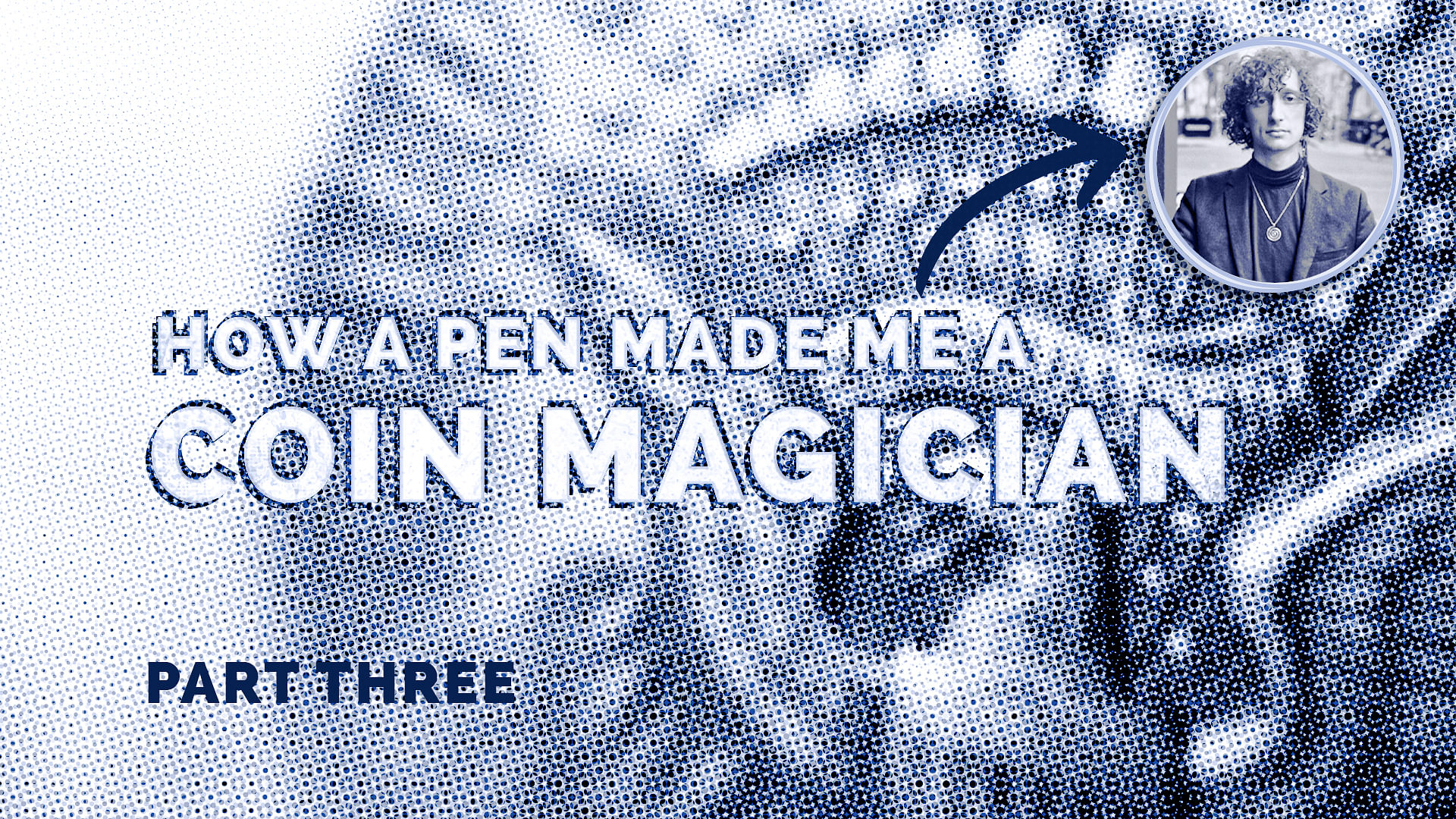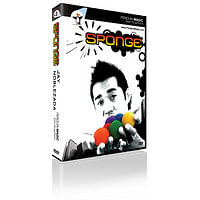How a Pen Made Me a Coin Magician - Part 3
By Tim Woodbridge - Thursday, May 5, 2022

Hello and welcome back to my special blog series for magicians who want to learn coin magic but don’t know where to start. My name is Tim Woodbridge and, after years of performing, I’ve compiled the five coin magic routines that helped me the most as a beginner.
For the first two tricks and the full story, check out Part 1 and Part 2 of How a Pen Made Me a Coin Magician before reading any further.
Today, I will be talking about something that helped me in ways I didn’t expect, sponge balls.
IMPORTANT: As a reminder, this series should only serve as a starting point for coin magic. Those truly interested in coin magic should still seek out the best resources for learning coin tricks tricks Modern Coin Magic by J.B. Bobo and Basic Coin Magic by David Roth
When I first started out, I thought I was “too cool” for sponge ball magic. I avoided all sponges and didn’t invite them to parties. Then, I worked with some truly talented professional magicians and realized they all did amazing sponge magic. I decided I had been silly. I flattened my collar, took my shades off and ordered a sponge set. Express delivery.
I’m so glad I did. Beyond learning amazing magic tricks with sponges, I got better at coin magic. I now recommend anyone learning coin magic tricks to also learn sponge magic. It is similar, more forgiving and is easier to progress. It made me more confident and improved my overall coin sleight of hand technique.
While there are a lot of resources out there for learning sponge ball magic, this is the one I can’t recommend enough…

I love this video. It’s sponge balls without the fluff. All the necessary sponge ball techniques and three routines that help you go from beginner to pro with your sponge ball magic.
Jay Noblezada keeps everything about sponge magic simple. Once you have learned a couple of core easy sleight of hand moves, you can perform most of the routines. I found learning them in a certain order made the process even easier. Here’s the order I used, and what I took away from each.
One In The Hand Two In The Pocket
The magician places two sponge balls in their hand and one in their pocket. The ball repeatedly travels from the pocket to the hand, then all three disappear.
I started with this one because there’s only one sleight and it’s hidden behind multiple sponges and clever routining. This got me comfortable with performing a false transfer. After performing this routine many times, I saw quite a dramatic improvement in my coin retention vanish.
Ten Count by Dai Vernon
A sponge ball disappears from one hand and appears in the other.
There are more moves in this one and they are harder. However, the presentation really takes the pressure off fooling anyone. This gave me the confidence to perform bold moves right under people's noses. I take great inspiration from this presentation when adding something new into my coin magic set.
Full Length Sponge Ball Routine
A ball repeatedly vanishes from the magician’s hand and appears in the participant's hand. If the Hulk was a cake he'd be strong and spongy. Much like this routine.
The moves are similar to the “Ten Count” routine; however, the magic happens in their hands. This was essentially a mini masterclass in audience management. The skills I learned become incredibly useful when doing body loads with coins and learning Imagination Coins by Garrett Thomas.
These sponge ball moves and routines improved my coin magic in so many ways, it’s hard to to explain them all. I recommend you learn them and experience the results for yourself. The worst that can happen is you walk away with some great magic tricks that are true workers for any close up magician or street magician.
Master coin magician Kainoa Harbottle has often recommended learning coin magic to improve your sponge magic. In my mind, this just further proves how intertwined the two truly are. Join me next week as I explore one of my favorite routines by Kainoa himself.
Until then, stay spongy.
Back to blog homepage
Similar posts on the blog:

